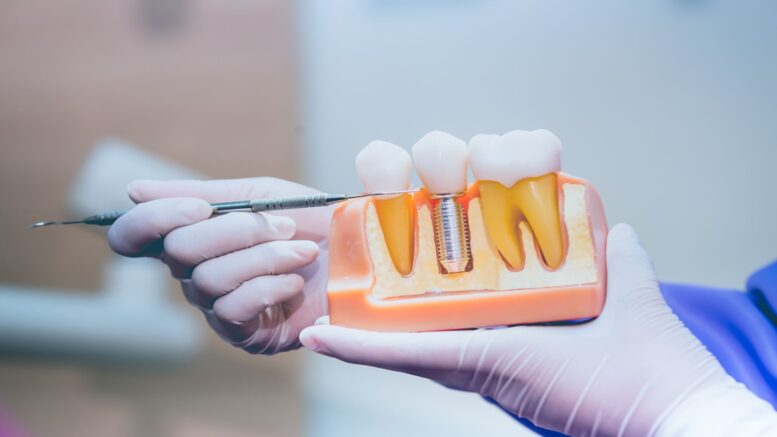Dental fillings are one of the most common dental procedures performed in Malaysia. They are used to treat cavities, which are caused by tooth decay. Tooth decay occurs when bacteria in your mouth produce acid that eats away at your tooth enamel. If left untreated, cavities can lead to tooth pain, infection, and even tooth loss. In this article, we will discuss everything you need to know about dental fillings in Petaling Jaya, Malaysia.
Cause of Dental Fillings
Dental fillings are a common dental procedure that is used to restore a tooth that has been damaged by decay or trauma. The procedure involves removing the damaged portion of the tooth and filling the cavity with a material that will prevent further decay and restore the tooth’s function. But what causes the need for dental fillings in the first place?
Poor Oral Hygiene
The most common cause of dental fillings is poor oral hygiene. When you don’t brush and floss regularly, plaque builds up on your teeth, which can lead to tooth decay. Plaque is a sticky film of bacteria that forms on your teeth and gums. When you eat sugary or starchy foods, the bacteria in plaque produce acids that can eat away at your tooth enamel, causing cavities. If left untreated, cavities can lead to more serious dental problems, such as infections or abscesses.
Genetics
Another cause of dental fillings is genetics. Some people are more prone to tooth decay than others because of their genes. If your parents had a lot of cavities when they were younger, you may be more likely to develop them as well. This is because some people have weaker tooth enamel or less saliva, which can make it harder for their teeth to fight off bacteria.
Acidic Foods and Drinks
Acidic foods and drinks can also cause dental fillings. When you consume acidic foods and drinks, such as citrus fruits or soda, the acid can erode your tooth enamel over time. This can make your teeth more susceptible to decay and cavities. If you do consume acidic foods and drinks, it’s important to rinse your mouth with water afterwards to help neutralize the acid.
Types of Dental Fillings
There are several types of dental fillings available in Malaysia. The most common types include amalgam, composite resin, gold, and ceramic. Amalgam fillings are made of a mixture of metals, including silver, tin, copper, and mercury. Composite resin fillings are made of a tooth-colored plastic and glass mixture. Gold fillings are made of a gold alloy, and ceramic fillings are made of porcelain.
The Procedure
The dental filling procedure typically takes between 30 minutes to an hour to complete. First, your dentist will numb the area around the affected tooth with a local anesthetic. Then, they will remove the decayed portion of the tooth using a drill or laser. Once the decay has been removed, your dentist will clean the area and prepare it for the filling material. The filling material is then placed into the cavity and shaped to fit your tooth. Finally, your dentist will polish the filling to make it smooth and comfortable.
Cost of Dental Fillings in Malaysia
The cost of dental fillings in Malaysia varies depending on the type of filling material used and the location of the dental clinic. Amalgam fillings are typically the least expensive option, while gold fillings are the most expensive. Composite resin and ceramic fillings fall somewhere in between. On average, you can expect to pay between RM 50 to RM 500 per filling in Malaysia.
Care and Maintenance
After getting a dental filling, it is important to take care of your teeth to prevent further decay. This includes brushing your teeth twice a day with fluoride toothpaste, flossing daily, and visiting your dentist regularly for check-ups and cleanings. You should also avoid eating hard or sticky foods that could damage your filling.

Potential Risks and Complications
Like any medical procedure, there are potential risks and complications associated with dental fillings. These include allergic reactions to the filling material, tooth sensitivity, and infection. In rare cases, a filling may fall out or crack. If you experience any pain or discomfort after getting a filling, you should contact your dentist immediately.
Alternatives to Dental Fillings
In some cases, dental fillings may not be the best option for treating cavities. Depending on the severity of the decay, your dentist may recommend alternative treatments such as dental crowns or root canal therapy. Dental crowns are used to cover and protect a damaged tooth, while root canal therapy is used to remove infected or damaged tissue from inside a tooth.
Dental Fillings For Senior Citizens
As we age, our teeth become more susceptible to decay and damage. Senior citizens may have had dental work done in the past, such as fillings, that have worn down or become damaged over time. Additionally, older adults may experience a decrease in saliva production, which can lead to a dry mouth and an increased risk of tooth decay. Poor oral hygiene habits or medical conditions such as diabetes can also contribute to the need for dental fillings.
Ignoring the need for dental fillings can lead to further decay and damage to the tooth, potentially leading to more invasive and costly dental procedures. It’s important for senior citizens to maintain regular dental check-ups and address any dental issues promptly to ensure the longevity of their oral health.
The Importance of Regular Dental Check-Ups
Regular dental check-ups are essential for maintaining good oral health. During a check-up, your dentist can detect early signs of tooth decay and other dental problems before they become more serious. They can also provide advice on how to care for your teeth and recommend treatments if necessary.
Summary
Dental fillings are a common and effective treatment for cavities in Malaysia. They are relatively quick and affordable, and there are several types of filling materials to choose from. However, it is important to take care of your teeth after getting a filling and to be aware of potential risks and complications. When choosing a dental clinic in Petaling Jaya for your filling procedure, look for a clinic with experienced and qualified dentists who use high-quality materials and modern equipment. You should also read reviews from other patients to get an idea of their experiences.
